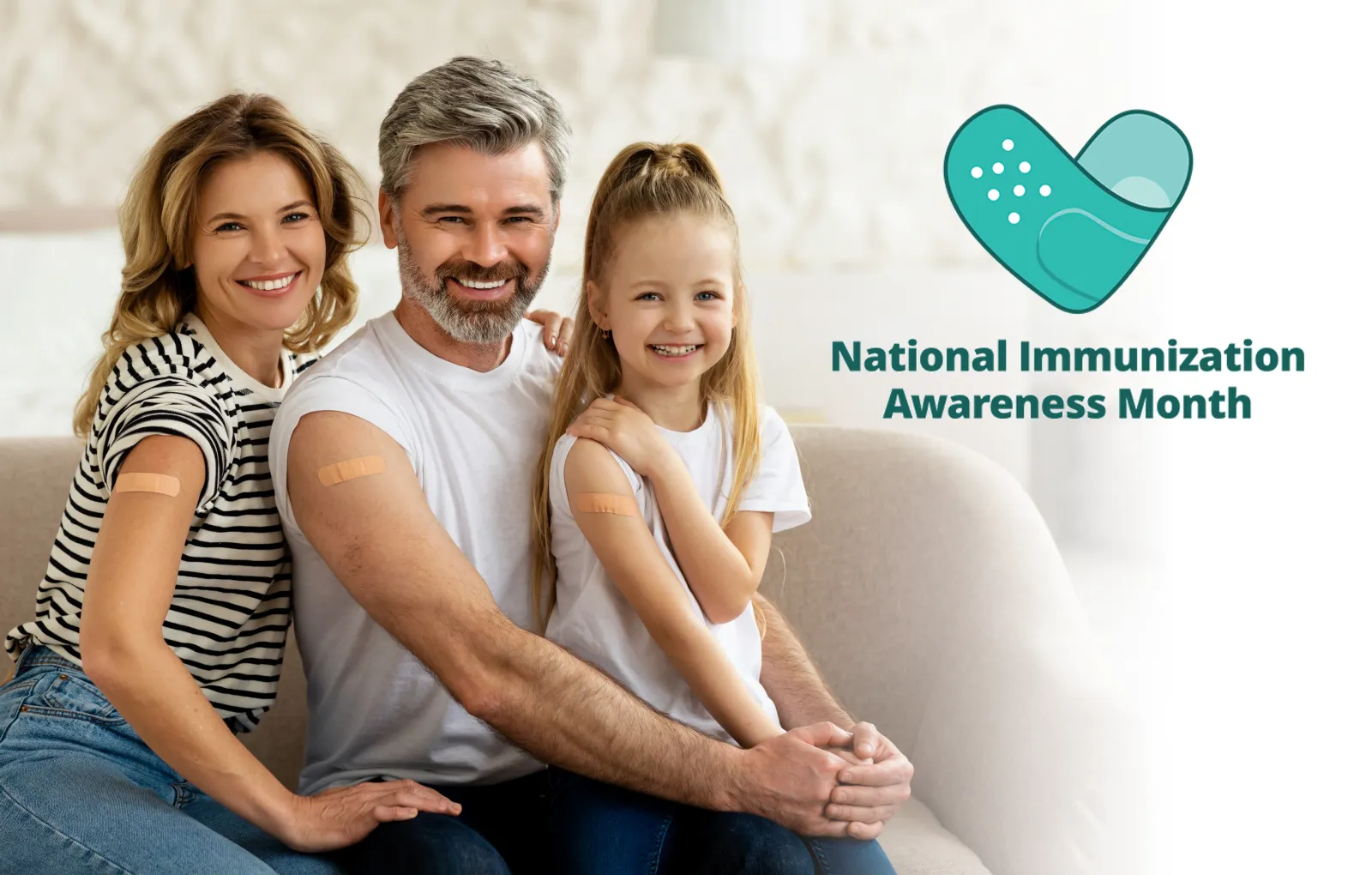
National Immunization Awareness Month (NIAM) is an annual observance held in August to highlight the importance of routine vaccination for people of all ages. During the month of August, Summit Medical Group wants to encourage you to talk to your doctor, nurse, or healthcare provider to ensure you and your family are protected against serious diseases by getting caught up on routine vaccination.
What is an immunization?
Immunology is the study of all aspects of the immune system. The human immune system is very complex, and when it isn't working properly, the result can be disease, autoimmunity, or illness. Immunologists are scientists who have specialized training in immunology, focusing on research, including vaccine research and development. These scientists have been responsible for the development of numerous life-saving vaccines, including those for polio, measles/ mumps/rubella, and chicken pox.
Why is it so important to get regular immunizations - especially for children?
Many people think that so-called natural immunity or herd immunity will keep them safe, or that many of the diseases for which we immunize don't exist anymore. But unfortunately, that's not true. First of all, diseases like polio or measles, are rare because generations of people were immunized against them. But outbreaks still occur all over the world, and with so many people able to travel frequently, exposure can happen.
Second, getting immunized protects you and those around you by limiting the spread of disease. The more people who are vaccinated, the less likely a major outbreak will occur. Immunization is key to creating herd immunity! Lastly, vaccination is much safer than trying to develop natural immunity from a disease, because some diseases can have lasting, damaging effects on your body—which can be completely avoided by getting vaccinated instead.
How do vaccines protect us?
Another misconception about vaccines is that they make you sick, overload your immune system, or can even cause autism in children. None of this is true. Vaccines help our immune systems fight infection faster and more effectively. Vaccines are made of very small amounts of weak or dead germs, so they won't make you sick. Some people can experience mild side effects from some vaccines, such as soreness at the injection site, but these dissipate quickly.
When you get a vaccine, it sparks your immune response, and trains your body to recognize disease-causing germs and fight them off if they ever invade your body. Finally, the idea that vaccines cause autism came from a long-since-discredited and retracted study that incorrectly linked the measles, mumps and rubella (MMR) vaccine to autism. This connection was never confirmed.
How do we know vaccines are safe?
Before a new vaccine is ever considered for approval by the FDA, pre-clinical and clinical studies are conducted to determine safety, effectiveness, and dosing. Vaccine trials have to involve even more participants than standard drug clinical trials because vaccines are intended for the entire population. Once a vaccine reaches the FDA approval phase, it is again evaluated for safety, effectiveness, and consistency of batch purity and potency.
Despite all of the advances in modern medicine, vaccine-preventable diseases are still a threat. Immunization is still the best protection. Listed below are various resources to help ensure that you and your family are protected and up to date on all immunizations:
- What vaccines does your child need? Take this quiz and find out.
- What vaccines do you need as an adult? Take this quiz and find out, and then click here for a schedule of adult immunizations by age.
- To download a schedule of required immunizations for children aged birth to 6 years of age, click here. (Para ver una lista de vacunas requeridas para niños desde el nacimiento hasta los 6 años de edad, haga clic aquí.)
- To download a schedule of required immunizations for children aged 7 to 18 years of age, click here. (Para descargar un calendario de vacunas requeridas para niños de 7 a 18 años de edad, haga clic aquí.)
Summit Medical Group provides a full range of required vaccinations for both adults and children. For more information, or to schedule an appointment, visit www.summitmedical.com/locations to find a provider near you.
